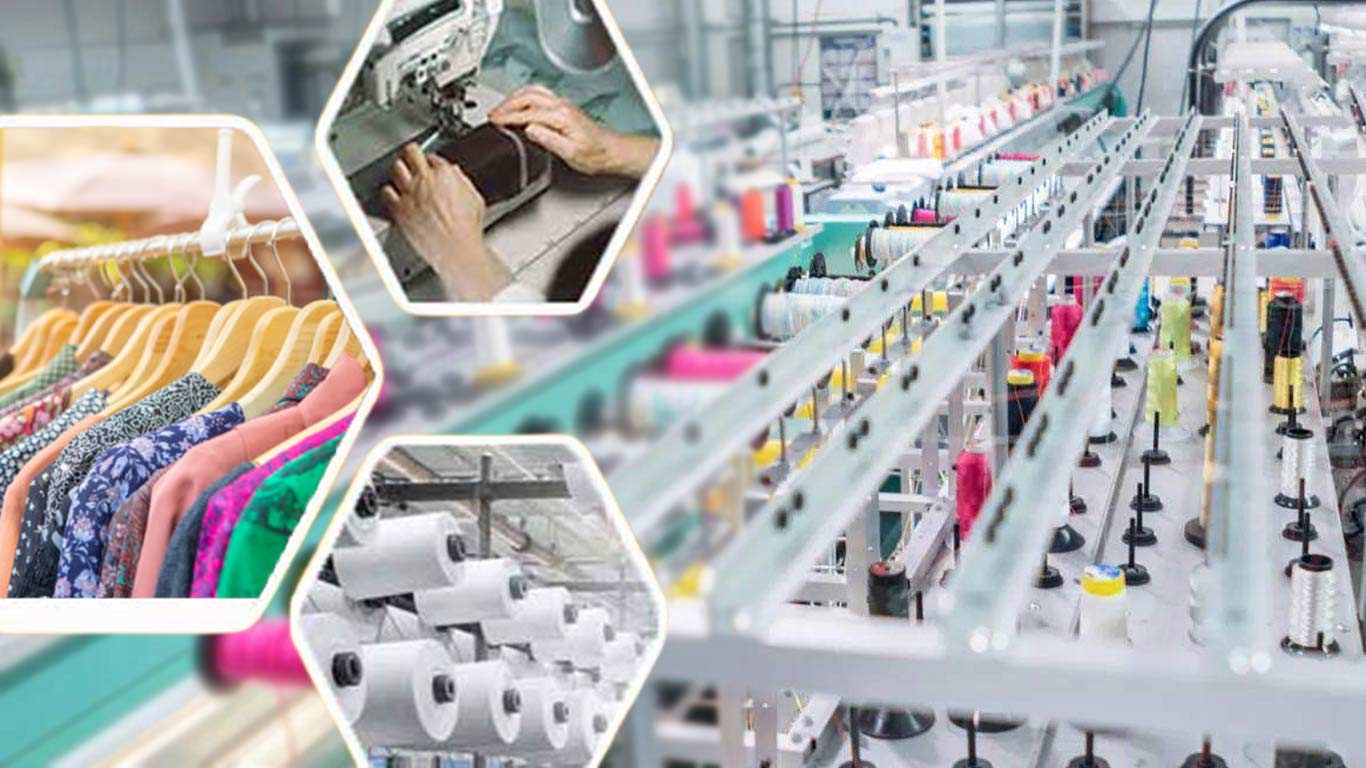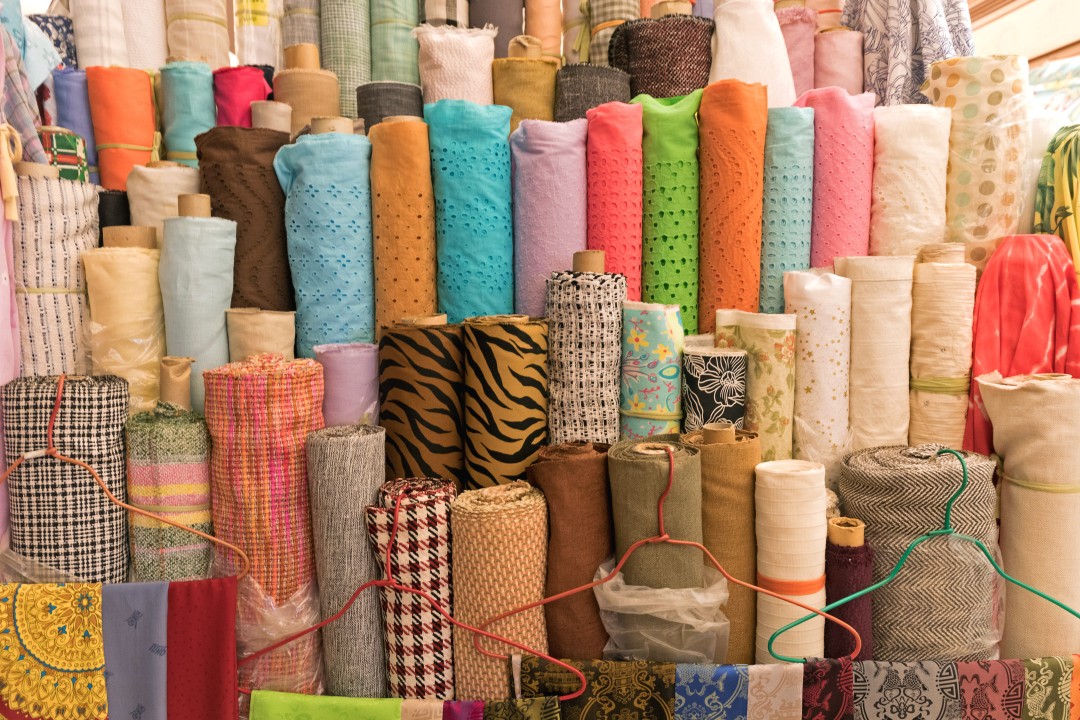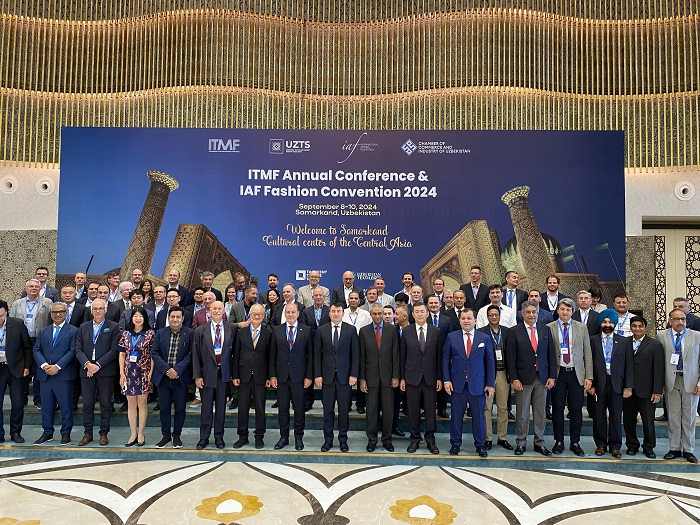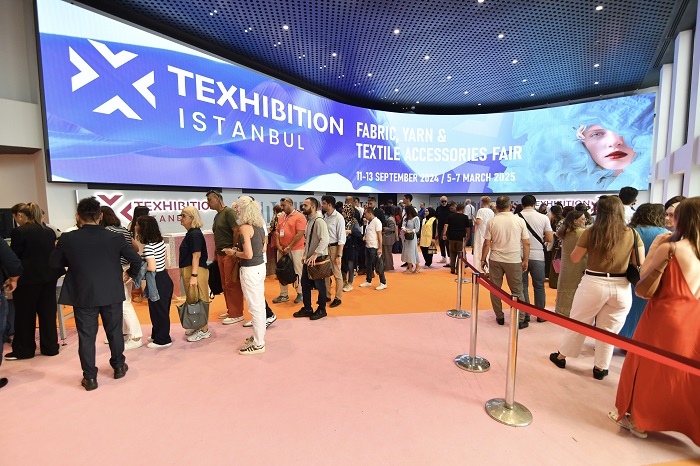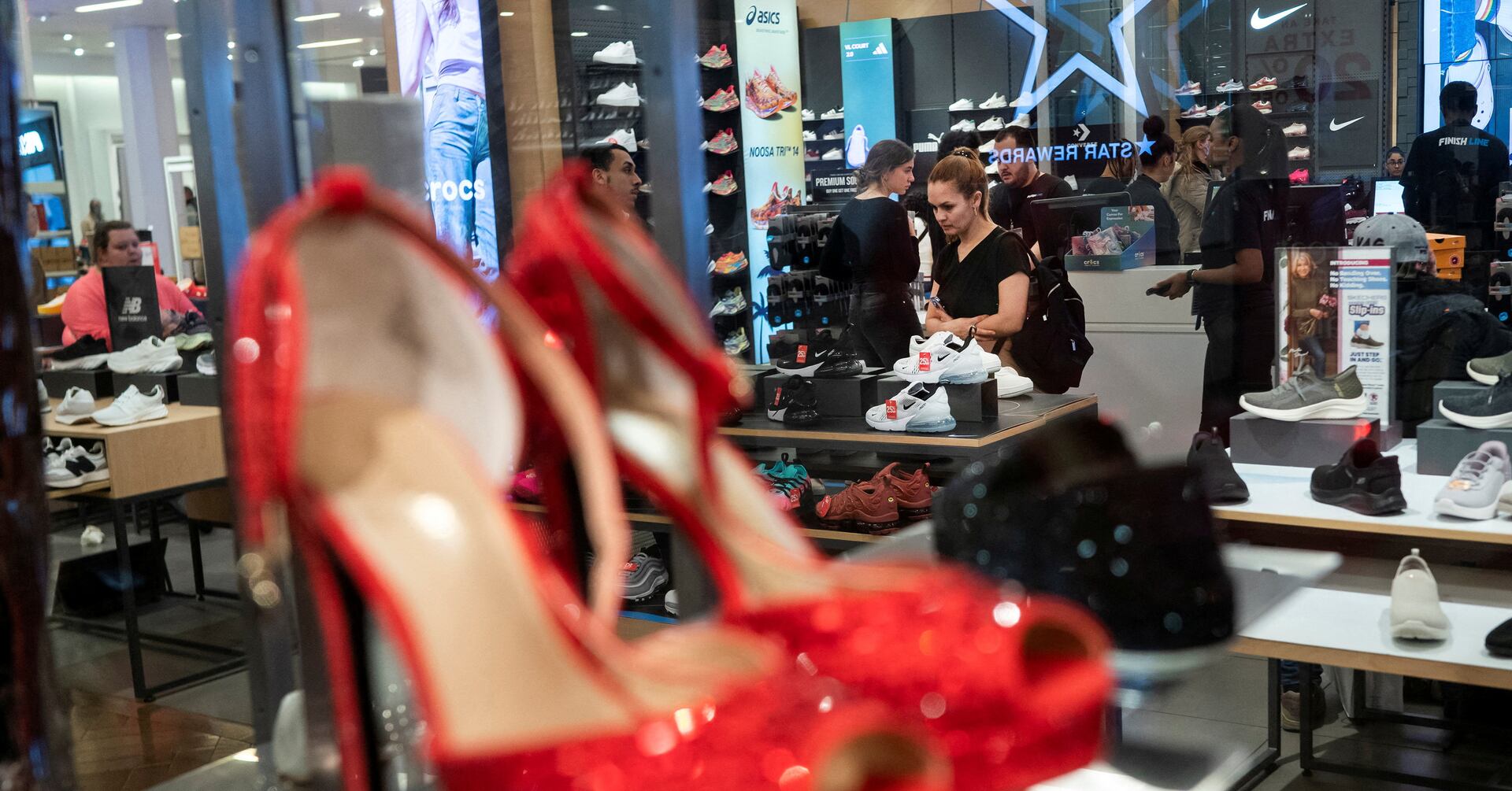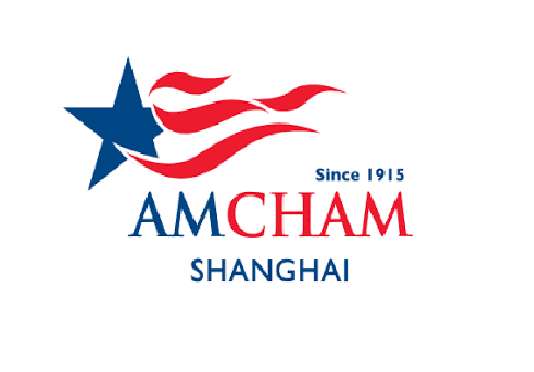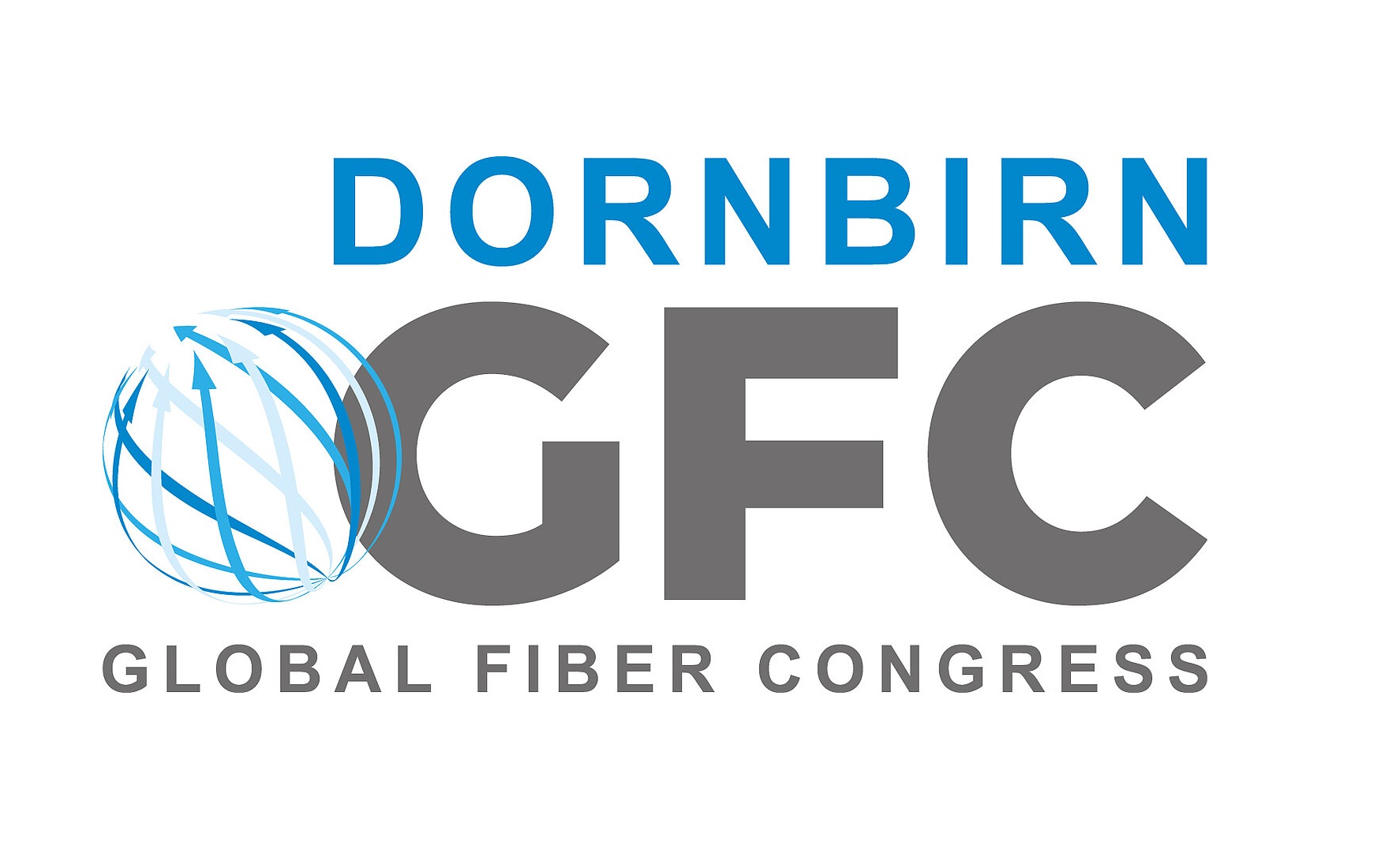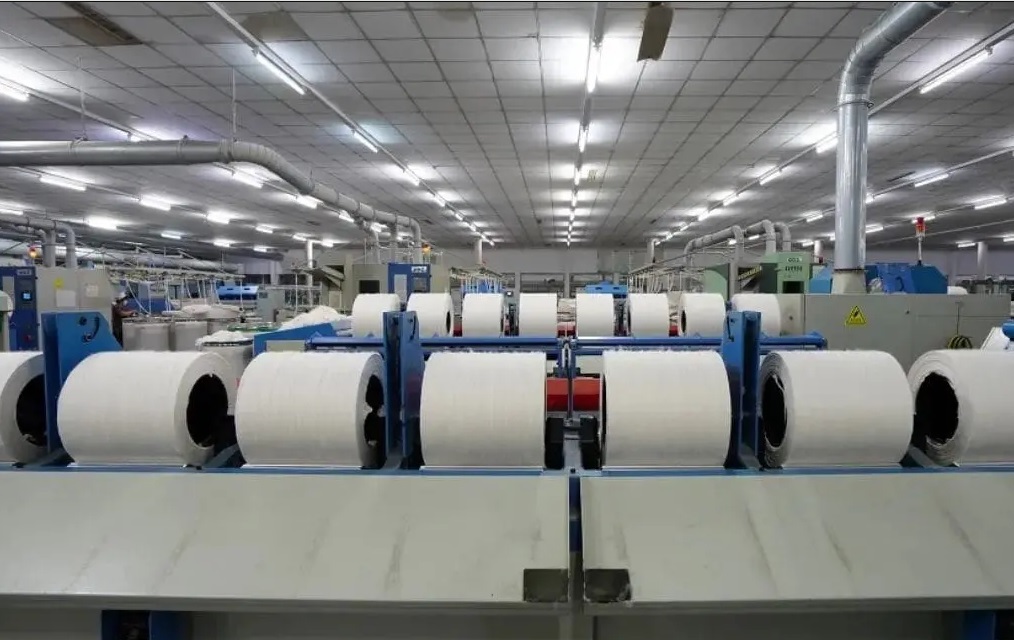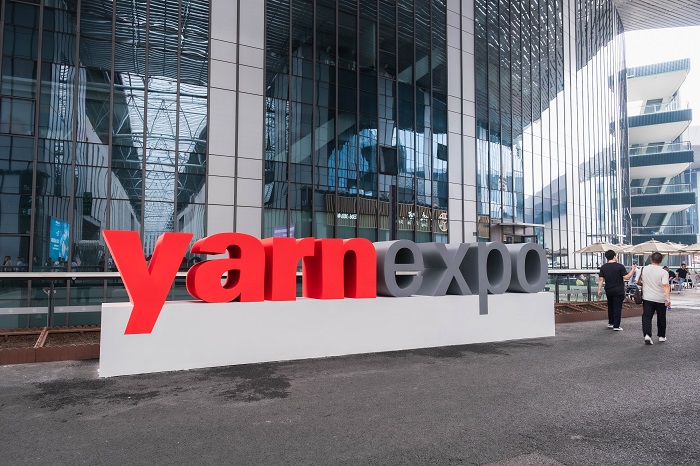FW
Taiwan textile fair will be held in New Delhi from November 18 to 19; in Bangalore from November 21 to 22; and Sri Lanka November 24 to 25. Renowned companies from Taiwan will showcase a wide range of cutting-edge high performance, trendy and contemporary products to South Asian buyers at this platform. There will be a wide variety of innovative offerings from leading Taiwanese manufacturers of textile and clothing accessories.
The textile and apparel industry in India and Sri Lanka is one of the largest contributors to exports. Exports from India increased by 8.10 per cent for 2012-13 whereas Sri Lanka’s export growth continued at 5 per cent. The annual event caters to textile and garment manufacturers, importers, exporters, buyers, merchandisers and retailers across India and Sri Lanka for their sourcing requirements.
The fairs will showcase a wide variety of products ranging from textured yarns, recycled polyester yarns and fabrics, woven fabrics, knitted fabrics, functional fabrics, outdoor and sports fabrics, labels, badges, ribbons etc. Importers in these countries will get an opportunity to interact with Taiwanese manufacturers to source superior fabrics and textile auxiliaries that will add more value to their product.
Taiwan textile fairs in South Asia are organized by the Taiwan Textile Federation and the Bureau of Foreign Trade.
Pakistan is likely to have a new textile policy by end of November. The salient features include support to small and medium enterprises in the textile sector, initiatives for growing better cotton, long-term financing and duty drawback of local taxes and levies.
Small and medium enterprises which usually work on value addition will get financing. A business-to-business portal may be launched for them soon. These enterprises will also get to open electronic letters of credit. New technology will be introduced in the weaving and spinning sectors. A fiber development centre will be opened.
The government is working on introducing new generation of BT cotton seeds in Pakistan to increase yields. World BT cotton seeds developers may be allowed to sell moderate seeds in Pakistan. At present, farmers are producing 1,000 to 1,300 kg of cotton per acre, which is very much low as compared to Australia and the US.
The Pakistan Cotton Standard Institute has been restructured to enable it to play an important role in improving quality and reducing contamination levels of cotton. The Trading Corporation of Pakistan has been intervening in the market and procuring cotton bales directly from ginners. It is felt such a step would reap profits for ginners but not for growers. It’s feared it will create distortions in the market and render the downstream industries uncompetitive and cause losses to the government.
GTTES (Global Textiles Technology and Engineering Show) will be held in Mumbai, from January 20 to 22, 2015. The show highlights the strengths of the Asian textile engineering industry and will showcase technological developments in the machinery and components field. It will serve as a platform for exchange of international products and ideas. Since it’s a non-spinning show, the focus is expected to be more on weaving, knitting and processing and allied activities. It will also address the needs of quality, variety, allied services, access to regional markets and clientele, especially for small to medium enterprises.
There will be a special focus on weaving, garment, knitting and embroidery machinery, non woven and technical textiles, digital printing and technical information services. China and Taiwan will have country pavilions. A unique feature is an exhibition section for spare parts, components and accessories of textile machinery across segments.
Textile machinery manufacturers can interact with agents in India and overseas. GTTES offers a golden opportunity to exhibitors and textile professionals to interact and decide on new investments. The show will cover an area of 12,000 sq. mt. with two halls devoted to machinery and accessories.
www.india-itme.com/GTTES2015/
Lectra has released Optiplan, its cutting-room optimization solution for apparel manufacturing. The speed and agility to respond quickly to change are the immediate benefits of taking a lean approach to the cutting room. Manufacturers today operate in an environment that makes it increasingly difficult to remain both profitable and competitive, and an optimized cutting room can make all the difference. Designed with the specific challenges of fashion and apparel manufacturing in mind, Lectra’s Optiplan applies lean manufacturing principles to cut-planning operations and transforms the cutting room into a competitive advantage—saving time, reducing costs and boosting efficiency.
By consolidating orders, and connecting disparate systems from ERP to the cutting room, Optiplan facilitates the flow of information and optimizes markers, spreading and cutting operations. Manufacturers can now boost efficiency by running what-if simulations based on different planning and manufacturing configurations, so that they can evaluate their design-to-cost and manufacture-to-cost options. Brands and manufacturers can predict the amount of fabric needed for a given production run, so that fabric orders are minimized and raw material inventories are reduced. Stocks can be replenished based on actual sales and not simply on predicted demand. Manufacturers can effectively minimize the risk of unsold or heavily discounted goods.
Lectra is the world leader in integrated technology solutions dedicated to industries using soft materials.
www.lectra.com/
Bangladesh wants duty-free access of its products into the US. The US says such a provision is already in place but Bangladesh denies and says its products are discriminated against by the US and it gets no duty benefits. Bangladesh’s gripe is that the US gives zero duty to products to sub-Saharan African countries.
It’s possible the US attitude has been influenced by American labor groups which have campaigned for an end to trade benefits unless Bangladesh allows internationally recognized labor rights. Bangladesh alleges a conspiracy against its readymade garment sector, which is flourishing and growing. It says the US had imposed 16 conditions after the Rana Plaza tragedy, and all the conditions have been fulfilled. However, the US refuses to see it that way. The country insists it has taken steps to amend labor laws, allowing workers to unionize freely, formed a ministerial committee to ensure factory compliance and pushed through an agreement among the government, factory owners and workers to ensure worker rights. Child labor has been eliminated and many of the newer factories are world class.
There’s a fear the US attitude could prompt the European Union, which purchases two-thirds of Bangladesh's apparel exports and does allow duty-free garment imports, to follow suit.
A rise in rates of raw jute in Bangladesh, witnessed in the last two months despite slow exports, which could lead to a drop in production level below last year’s level has put pressure on public and private mills, already under pressure for dwindling export orders. At present, raw jute is trading at Tk 1,600-1,800 a maund (40 kg) in producing regions, which is 13 per cent higher than last year. Subsequently, a section of stockists saw an opening for windfall in the off-season, hoarding most of the supply of raw jute that was made available in the past two months.
Now jute and textiles ministry has directed Department of Jute (DoJ) to take action to ensure adequate supply of the natural fibre in the market. It asked DoJ for measures so that none can hold 1,000 maunds of jute more than a month. The ministry also directed DoJ to prevent traders without licenses to buy and sell raw jute.
Raw jute exports slumped more than 100 per cent last fiscal year to 9.84 lakh bales, according to the DoJ. In case of processed jute, only yarn exports grew marginally but shipment of jute sacks and bags dropped as well in the last fiscal year. According to Export Promotion Bureau, between July and September of current fiscal 2014-15, exports were down 3.94 per cent in terms of value year-on-year.
Motj.gov.bd
The European Union is helping the Myanmar garment industry boost its productivity. This includes projects to enhance efficiency and quality, reduce waste and energy consumption and improve working environments.
For instance experts from a German textile company have suggested ways to improve production at six factories. A separate mission has seen the installation of production-flow software at some factories. This ensures staff is rewarded according to their performance and allows management to monitor production. The initiative’s aim is to work closely with companies and organisations in the country, building capacity and increasing skills, as well as helping the development of export and marketing strategies for the garment sector.
Specific actions will include a range of training initiatives, including a study tour to Europe for stakeholders, and the identification of showcase companies and benchmarking for best in class companies. Companies looking for alternative low-cost sourcing alternatives to China, combined with the lifting of economic sanctions by the US and Europe, have been looking at Myanmar's clothing industry with interest.
Myanmar’s garment industry is poised to become a major player in the global garment supply chain. The country has had a long history of making yarn, fabric and garment. Myanmar allows 100 per cent foreign investment in the garment industry, as well as joint ventures with existing manufacturers and potential ones.
Invista has opened a new laboratory in China. The laboratory is designed to improve product development cycle time, enhance technical services in the region, and ultimately provide innovative solutions to customers working with Invista.
The new facilities will allow performance testing and analysis of advanced textiles and polymers used in airbags and in products sold under the Cordura and Dacron brands in the Asia Pacific market. In addition to basic testing, technicians will be better able to examine many other properties such as flexibility, wear resistance, breathability and aging. This is intended to give Invista a clearer understanding of specific textile performance and innovation needs for the Asian market.
In the field of automotive safety the lab is designed to extend Invista’s knowledge of airbag fiber and fabric demands, accelerating cooperation with customers in product innovation, development and qualification. The lab is aimed at improving the efficiency of the company’s service to customers in China and Asia Pacific—supporting fiber and fabric innovation and speeding the introduction of new products to the market.
www.invista.com/en/index.html
Apparel factory owners in Bangladesh are increasingly becoming dependent on the country's stock market for raising low-cost funds to expand their business, thanks to higher interest rates of commercial bank loans. As per the initial public offering prospectus of some companies, most of the prospectus aimed at fund raising for paying-off bank term loans, capital investment, expanding of the existing plants, working capital purpose, purchasing new machinery, constructing new factory buildings, purchasing of land and land development.
Entrepreneurs want to be enlisted with the stock market as it reduces the cost of financing business expansion. A company has to count high interest for bank loans and thus the lion’s share of the profits is being paid as bank interest. Therefore, they prefer the stock market for raising low-cost funds. Also getting funds from outside the banking system would help reduce debt and increases the brand value with a further scope for indirect advertisements for the company. Currently, 36 textile companies are enlisted with the Dhaka Stock Exchanges and the sector represents 3.5 per cent of the total market capitalization.
India is the world's second largest producer of man-made fibers. These constitute almost two-thirds of the domestic textile market. However, India’s share in the global exports of man-made fibers is just about three per cent. A major anomaly in the excise duty structure is affecting the growth of Indian textile industry and preventing it from achieving a larger share of the global market.
In contrast, China has given a big push to synthetic textiles and this has helped it become the world's largest textile exporter. Almost 80 per cent of China's textile exports consist of synthetics. The excise duty imposed on man-made fiber and yarn in India is 12 per cent while cotton yarn and fiber are exempt from excise duty.
In the domestic market, poor consumers suffer as the least expensive polyester shirt or sari made of synthetic fiber costs Rs 100 or Rs 150 because of the excise duty. In contrast, no excise duty is paid on cotton fiber and yarn used to produce cotton shirts bought by consumers at prices ranging above Rs 1,000. Therefore, only the poor pay more tax on textiles in the domestic market while the better-off are favored with no excise duty on the premium cotton worn by them.

